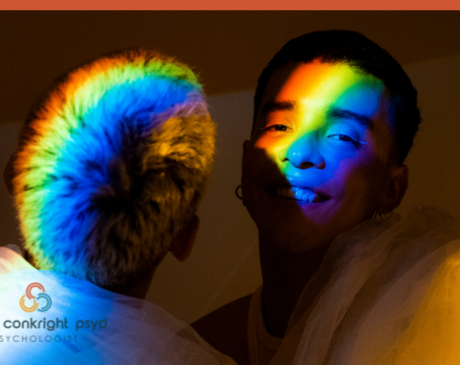From Shame to Growth: Biology, AutoBiography, and Relational Affects

As a licensed psychologist and founder of Meaningful Happiness and The Relationship Workshops, I’m here to shed light on a topic that might seem intellectual or academic, but is deeply rooted in our feelings and emotional experiences. The question I pose to you is this: what’s more important to you, the way you feel or the way you think? And how do you even distinguish between the two?
By the end of this discussion, you’ll gain invaluable insights into the nature of feelings, their origins, and most importantly, how to gain control over what you’re feeling. Let’s start by exploring what feelings really are.
Feelings, in essence, are reactions to stimuli. Consider this scenario: you’re driving on the highway, and someone honks at you. You experience a startle response, an affect – a biologically based feeling state that occurs automatically. If that same person continues to lay on their horn, chances are you’ll start feeling angry, another reaction to the stimulus.
When a car swerves towards you in traffic, you don’t consciously think about feeling fear; you react with fear, an innate affect. These affects are hardwired into our biology, and we don’t have control over these initial feeling states. This is a crucial realization because it leads us to understand the difference between affects and emotions.
Affects are the immediate, visceral responses to stimuli, while emotions are the subsequent memories, associations, and narratives that get triggered after the initial affective response. In simpler terms, affects are biology, while emotions are our autobiographies.
There are nine core affects that every human being experiences from birth: startle, surprise, fear, disgust, anger, interest, enjoyment, and two others that will be discussed in detail later. These affects are universal, and every parent recognizes them in their babies’ expressions and reactions.
We are biologically wired to respond to infants’ affects. A smiling, interested baby elicits an automatic smile from us, while a wailing, distressed infant triggers distress within us as well. This innate connection highlights the profound impact affects have on our emotional experiences.
So, why is understanding affects so crucial? Because if you want to gain control over what you’re feeling, you need to comprehend how this intricate system works.
If you’re feeling distressed, the first step is to acknowledge and identify that specific affect. By recognizing that you’re distressed because of a crying baby on a plane, for instance, you can then explore techniques to manage and cope with that distress effectively.
Emotions like shame and distress are often deeply unpleasant, and we tend to react to them by shifting towards anger – a secondary emotion that feels more active and within our control. However, this anger frequently stems from underlying shame or distress, and expressing it often exacerbates conflicts and misunderstandings, especially in relationships.
By recognizing the root affects driving our emotions, we can address them directly, rather than lashing out with anger and creating further turmoil. This self-awareness and emotional intelligence are invaluable tools for personal growth and maintaining healthy relationships.
Throughout this journey of understanding affects and emotions, it’s essential to remember that affects are universal, biologically hardwired responses, while emotions are deeply personal, shaped by our individual histories and narratives. By unraveling this intricate tapestry, we can gain a profound understanding of ourselves and others, ultimately enabling us to navigate the complexities of human emotion with greater wisdom and control.
So, keep following me on this path of self-discovery. Like, subscribe, and stay tuned for more insights into the fascinating world of affects, emotions, and the art of emotional mastery. Together, we can unlock the secrets to living a more fulfilling, emotionally balanced life.
Further Exploration and Support
While understanding shame can significantly benefit individual growth, its influence within relationships is equally profound. If you’re interested in further exploring shame’s role in your relationship or are seeking strategies to manage it together, remember that you’re not alone. Consider consulting with a relationship counselor.
In Atlanta, GA, many skilled therapists can offer supportive and confidential couples counseling Atlanta GA. I support those eager to deepen their knowledge of these dynamics or begin their journey toward a resilient, fulfilling relationship.
Contact Dr. Scott Conkright today to schedule a consultation. (404) 315-7150




// Comments are closed //